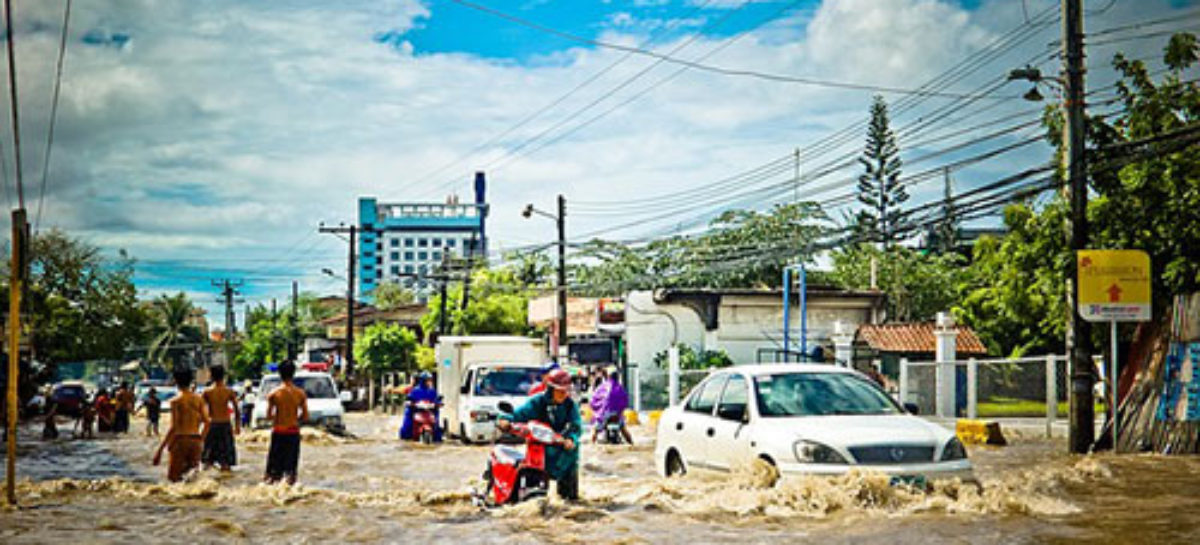Chennai, Kancheepuram and Tiruvallur Districts of Tamil Nadu experienced unprecedented amounts of rain, followed by devastating floods and severe waterlogging. The immediate need of the hour in these areas is to take precautionary measures to prevent post-flood epidemic outbreak of communicable diseases. Against the backdrop of typical tropical climate, these three districts are at an increased risk of the outbreak of the following communicable diseases.
- Waterborne diseases such as Typhoid, Leptospirosis, Hepatitis A and Cholera
- Diseases such as Dengue Fever, Malaria, Yellow fever and Hemorrhagic Fever spread mainly by mosquitoes
When there is a significant displacement of population and when post-flood water sources become contaminated, the potential of an epidemic of such diseases is rather high. Of the diseases named, Cholera is one dreaded disease to be doubly guarded against.
Causes, Symptoms and Treatment of Cholera
The bacteria Vibrio Cholerae that cause this dangerous disease can contaminate easily the following common sources of food and drink.
- Food and drinks sold by street vendors
- Ice made from municipal corporation water
- Municipal water supplies
- Raw or undercooked fish/seafood caught in polluter waters, especially if contaminated by sewage
When food prepared with contaminated water is eaten, or contaminated water is drunk, the bacteria release a toxin that produces severe diarrhea.
Symptoms
The symptoms of cholera can be noticed as soon as a few hours, or in about 5 days after the infection has occurred. Symptoms are often mild, but sometimes they can be very serious too. One in 20 may have severe watery diarrhea together with vomiting.
Diarrhea accompanied by vomiting can lead to dehydration. Even people only mildly affected are potential carriers of the infection; if they are not identified and treated immediately, the illness can spread quickly from them, causing an epidemic.
Dehydration will lead to:
- Low blood pressure
- Rapid heart beat
- Loss of skin elasticity
- Increased thirst
- Dry mucous membrane in the nose, as well as the mouth, eyelids and throat
- Muscle cramps
When dehydration is left untreated, it can lead to shock and consequently certain death, in a matter of hours.
Treatment
Though a vaccine is available to prevent cholera, its effects last only a few months and it may not save one in two who receive it; taking other precautionary measures, therefore, for prevention of the infection is a much better solution.
The mainstay of treatment for cholera is to stay hydrated. Depending on the severity of the diarrhea, the treatment will comprise oral medications or intravenous solutions, to compensate the loss of fluids from the body. In mild cases, antibiotics may be prescribed but not as part of emergency care treatment.
Protective Measures
Ensure that you use only boiled, chemically treated, disinfected or bottled water for the following purposes:
- Drinking
- Preparation of food or beverages
- Washing vegetables, fruits and other edible products that require to be washed
- Making ice
- Washing hands and face
- Brushing teeth
- Washing utensils and dishes used to prepare food or to serve
To ensure that you have clean water, boil water for a minute, filter, and add a commercial chemical to disinfect.
Furthermore, avoid eating raw foods, including:
- Raw and under-cooked meat or seafood
- Unpeeled fruits and vegetables
- Fish caught in waters which could be contaminated
- Unpasteurized milk or milk products
In the event of developing watery and severe diarrhea self or any other, please notify and seek immediate medical help. Cholera is treatable if reported promptly, but the ensuing dehydration can cause serious complications, and therefore it is important to seek treatment immediately.
Kauvery Hospital is globally known for its multidisciplinary services at all its Centers of Excellence, and for its comprehensive, Avant-Grade technology, especially in diagnostics and remedial care in heart diseases, transplantation, vascular and neurosciences medicine. Located in the heart of Trichy (Tennur, Royal Road and Alexandria Road (Cantonment), Chennai, Hosur, Salem, Tirunelveli and Bengaluru, the hospital also renders adult and pediatric trauma care.
Chennai – 044 4000 6000 • Trichy – Cantonment – 0431 4077777 • Trichy – Heartcity – 0431 4003500 • Trichy – Tennur – 0431 4022555 • Hosur – 04344 272727 • Salem – 0427 2677777 • Tirunelveli – 0462 4006000 • Bengaluru – 080 6801 6801



